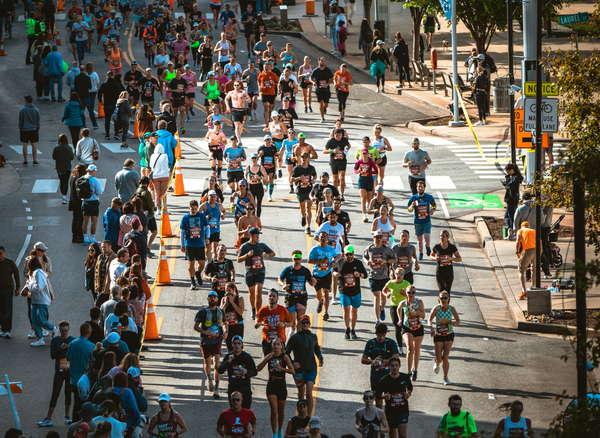Usain Bolt, often referred to as the "Lightning Bolt," has left an indelible mark on the world of track and field. With world records in the 100m and 200m sprints, Bolt's dominance in sprinting events is unparalleled.
Does Usain Bolt have an unfair advantage?
Bolt's towering height of 6'5" is unusual for a sprinter, giving him a longer stride length. This means he covers more distance with each step compared to his competitors. While most sprinters take around 45 strides to complete a 100m race, Bolt does it in about 41 strides. This stride efficiency is a significant factor in his record-breaking performances.
The Leg Length Discrepancy
Interestingly, Bolt has a leg length discrepancy, with his right leg being half an inch shorter than his left. For most people, this would be a disadvantage, potentially causing balance issues and pain. However, Bolt has turned this into a unique advantage. His shorter right leg allows him to generate more force with each stride, propelling him ahead of his competitors.
Research shows that this discrepancy might contribute to his powerful finishes. While scoliosis patients often struggle with balance and pain, Bolt's functional scoliosis has not hindered his performance. Instead, it has become a part of his unique running form, helping him dominate the track.
Training and Hard Work
While Bolt's physical attributes are extraordinary, his success is not solely due to his natural gifts. The Jamaican sprinter's rigorous training regimen and dedication play a crucial role in his achievements. Bolt's training focuses on building core muscles, improving stride efficiency, and enhancing overall power.
Bolt's coach, Glen Mills, has been instrumental in shaping his career. Under Mills' guidance, Bolt has undergone intense physical therapy and training to maximize his potential. This combination of natural talent and hard work has made Bolt the fastest man in history, winning multiple gold medals at the World Championships and Summer Olympics.
The Science Behind Bolt's Speed
Bolt's speed is not just a result of his physical attributes and training; it's also backed by science. Studies have shown that Bolt's unique biomechanics contribute to his sprinting prowess. His long legs and powerful muscles allow him to generate more force with each stride, giving him a significant advantage over his competitors.
Additionally, Bolt's ability to maintain his top speed for longer distances sets him apart from other sprinters. While most athletes experience a decline in speed towards the end of a race, Bolt's endurance allows him to maintain his pace, often finishing races with a burst of speed. This combination of power, stride efficiency, and endurance makes Bolt a formidable competitor on the track.
Fairness?
Some argue that Bolt's unique physical attributes give him an edge over his competitors, making the playing field uneven. Others believe that Bolt's success is a result of his hard work and dedication, and that his natural gifts should not be considered unfair.
This debate is not limited to Bolt; it extends to other athletes with unique physical attributes or conditions. For example, Michael Phelps' long torso and short legs give him an advantage in swimming. These cases highlight the complexities of defining fairness in sports.
Bolt's Impact on the World of Athletics
Regardless of the debate, Bolt's impact on the world of athletics is undeniable. His record-breaking performances have inspired a new generation of sprinters and brought global attention to the sport. Bolt's charismatic personality and showmanship have also made him a fan favorite, earning him the title of one of the "favorite living people" in the world.
Bolt's success has also sparked interest in the science of sprinting, leading to more research on biomechanics and training techniques. This research has the potential to benefit not only elite athletes but also recreational runners and scoliosis patients seeking to improve their performance and reduce pain.
Life After Bolt
As Bolt's career have ended, the question remains: who will be the next Usain Bolt? While it's unlikely that anyone will match Bolt's unique combination of physical attributes and hard work, there are several promising sprinters on the horizon. And Noah Lyles have shown great potential, and the future of sprinting looks promising.
Bolt's legacy will continue to influence the sport for years to come. His achievements have set a high standard for future sprinters, and his impact on the world of sprinting will be felt for generations. Whether or not Bolt had an unfair advantage, his dedication, hard work, and passion for the sport are undeniable.
The Psychological Edge
While physical attributes and training are crucial, Bolt's mental toughness has also played a significant role in his success. Bolt's ability to stay calm under pressure and maintain his focus during races has given him a psychological edge over his competitors. This mental fortitude has allowed Bolt to perform at his best, even in high-stakes situations like the World Championships and Olympics.
Bolt's confidence and self-belief have also contributed to his success. His charismatic personality and showmanship have made him a fan favorite, and his positive attitude has helped him overcome setbacks and challenges throughout his career. This combination of mental toughness and confidence has been a key factor in Bolt's dominance on the track.
The Importance of Recovery and Injury Prevention
In addition to training and mental toughness, recovery and injury prevention have been crucial to Bolt's success. Bolt's rigorous training regimen puts a significant strain on his body, making recovery and injury prevention essential. Bolt's team of physical therapists and trainers have played a vital role in keeping him healthy and injury-free.
Bolt's recovery routine includes regular physical therapy sessions, massages, and stretching exercises to maintain his flexibility and prevent injuries. Additionally, Bolt's focus on proper nutrition and hydration has helped him stay in peak physical condition. This holistic approach to training and recovery has allowed Bolt to maintain his performance and longevity in the sport.
The Legacy of Usain Bolt
Usain Bolt's legacy extends beyond his record-breaking performances and gold medals. Bolt's impact on the sport of athletics and his influence on future generations of sprinters are a testament to his greatness. Bolt's dedication, hard work, and passion for the sport have set a high standard for future athletes to aspire to.
Whether or not Bolt had an unfair advantage, his contributions to the sport and his legacy as the fastest man in history are undeniable. Bolt's achievements will continue to inspire and influence the world of athletics for years to come.
Usain Bolt's FAQs
How many medals does Usain Bolt have?
Usain Bolt has a total of 8 Olympic gold medals and 11 World Championship gold medals in the 100-meter, 200-meter, and 4x100-meter relay races. He also holds several world records, making him one of the most decorated athletes in history.
How has Bolt's leg length discrepancy affected his performance?
Bolt's right leg is half an inch shorter than his left, which allows him to generate more force with each stride. This discrepancy has contributed to his explosive starts and powerful finishes, giving him an advantage over his competitors.
What role has technology played in Bolt's success?
Advances in track surfaces, footwear, and training equipment have played a significant role in Bolt's success. Custom-made spikes and improved track surfaces have allowed Bolt to maximize his stride efficiency and power, contributing to his record-breaking performances.
Who is faster than Usain Bolt?
Currently, there is no one who has officially beaten Usain Bolt's world record times in the 100-meter and 200-meter races. However, there are several promising sprinters such as Noah Lyles and Andre De Grasse who have come close to his times. It remains to be seen if anyone will surpass Bolt's records in the future.
Is Noah Lyles faster than Usain Bolt?
No, Noah Lyles has not yet surpassed Usain Bolt's world record times in the 100-meter and 200-meter races. However, he has shown great potential and is often considered one of the top contenders to take over the title of "fastest man in the world." So far, Bolt remains unmatched in his dominance on the track.
Is Usain Bolt the fastest man alive?
Although Usain Bolt is retired, he is considered the fastest man alive based on his record-breaking performances and world records in the 100-meter and 200-meter races. While there are several promising sprinters who may one day challenge his title, Bolt's dominance on the track remains unmatched.
Summary
Usain Bolt's success as the fastest man in history is a result of a unique combination of physical attributes, hard work, and mental toughness. While his towering height and leg length discrepancy give him an edge, Bolt's rigorous training regimen and dedication have been crucial to his achievements. The debate on fairness in athletics continues, but Bolt's impact on the sport and his legacy as a global icon are undeniable.









